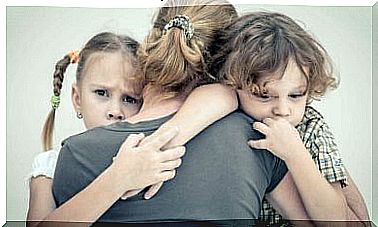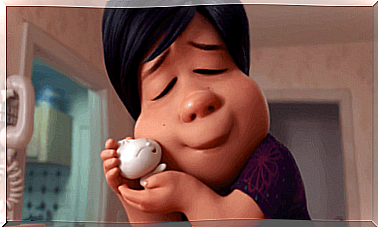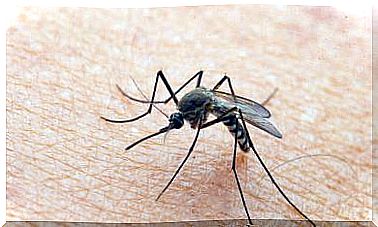A Child’s Personality Influences What She Eats
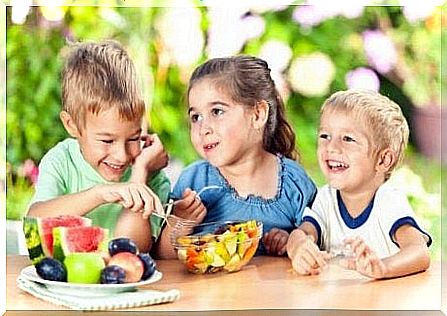
A child’s personality has been shown to influence what she eats. We will discuss this below.
We often see children who are difficult and fussy at meal times. The dining table can sometimes even become a battlefield of sorts.
When a child doesn’t want to try certain foods or has a favorite, it’s not just about habits or personal taste, but also personality.
Every child has certain characteristics and traits that make them different from others. At some point in their development, it is quite common for them to be reluctant to accept certain foods or to behave in a certain way when presented with certain foods.
However, these behaviors are not explained solely by the fact that they are children. They may be due to a child’s personality.
It’s good to know this as it can help you make better parenting decisions and learn how to handle these situations.
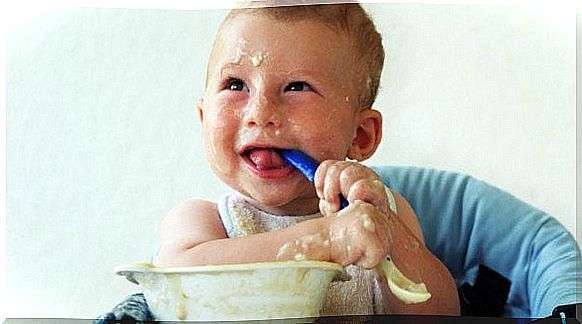
A child’s personality and how it comes into play at mealtimes
As they get older, a child is exposed to food in many different ways. At the beginning of their lives, their staple food is milk. This changes as they grow and it is important to introduce new flavors and eating habits.
The relationship a child builds with food is what we call their eating behavior.
It has to do with several issues: how she sees her family’s relationship with food, food availability, social status, parental affection, and cultural traditions.
Thus, several factors can influence a child’s behavior around food.
The types of personalities in children
Let’s look at different types of personalities and characteristics:
- We have the child who adapts well to different situations and the changes she experiences. This child is happy and has regular habits and predictable behavior. It is easy for her to get along with others and her level of attention is good.
- Then there is the child who is very active and distracted. She withdraws when faced with changing situations and can often be grumpy. It is harder for her to form regular habits and tantrums are common when it comes to sleeping or eating. This is often referred to as a “difficult” child.
- Finally , we have the child with a low activity level who has difficulty adapting to new situations and changes. This child can be sociable and always seeks the acceptance of her parents.
How does a child’s personality affect food?
There are studies showing that both a child’s personality and her emotions influence her eating.
Anger, which is usually seen in difficult children, causes the child to be more picky when it comes to tasting food.
Sadness or anxiety can cause a loss of appetite. On the other hand, you have the ‘easy’ children with the happy and calm characteristics, which make these children more suitable for a varied range of foods.
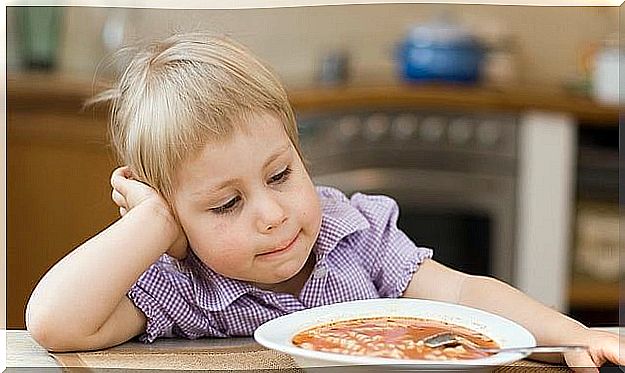
In general, problems with lack of appetite are related to children’s experiences of social and family interactions.
The problems children experience in their relationship with their parents or their environment will affect their appetite.
While this has to do with their emotions, the child’s degree of sensitivity is linked to their personality, meaning one thing leads to another.
On the other hand, refusing to eat a bite is associated with cases of overprotective and domineering personalities. Parents certainly have experience with the latter.
Children who reject food can be identified by the following personality traits:
- Those who refuse to eat foods because of their texture or color are considered sensory children.
- Those who exhibit perfectionist personality traits at mealtimes require extra attention. So in these cases one food should not be mixed with another.
What can we do with this information now?
The good thing about being familiar with the relationship between personality and nutrition is that you can identify the specific behaviors of children.
A child’s personality influences children’s behavior at mealtimes. Age also plays a role in this dynamic, as it makes children’s relationship with food more or less extreme.
The solution to problematic behavior depends on this interaction between both your child’s personality and food.
One option may be to take a different parenting approach. Or you could change some of your family’s eating habits. In any case, patience is essential.
